Interview With Roderick Beaton on Ancient Greek Cities & Culture
Listen to the Podcast Episode:
Mitchell: Today we have the pleasure of speaking with Roderick Beaton. He's the author of the book The Greeks: A Global History. The discussion is centered around topics of the Greek city and Greek civilization. I hope you enjoy it.
Mitchell: Well, Roderick, thank you for joining us today. I appreciate you making the time. We wanted to start off and ask you a couple of questions on your background. So our listeners can understand your history and expertise.
Roderick: Well, it's a great pleasure to be with you and thank you for having me on. Short answer is I started off at an impressionable age about 13, 14, traveling across Europe on family holidays and all the way from Scotland, which is in the very dark northwestern edge of Europe. And we traveled right across the continent. We ended up in the Mediterranean. We finally got as far as Greece, which is about as far as you can go and you know, Greece was a land of sun, it was the Mediterranean, it was lively, it was exciting. It was full of, it was full of, you know, sort of Mediterranean sort of people. It was lively. It was fun. I mean, these are all cliches. There was a fun that you've never got in Scotland, for example. But all of this kind of, you know, it really got my, 14-year-old sort of spirit. But something happened at the same time that really clinched it for me. And that was, perhaps not entirely coincidentally, but I was about to start studying ancient Greek language at school. In those days, lots of people did Latin, but ancient Greek as today, it's a bit of a niche subject, it's a bit spatial, it's not so many people do it. And I was about to start Ancient Greek. And the things that I think really got to me on those early experiences of Greece: There I was in a busy city street, or in a sort of harbor side, hearing people yacking away, knighting to the dozen at the tops of their voices in a language that was the same language that was spoken two and a half, 3,000 years ago, and that I was laboriously trying to learn to reconstruct on the page in school lessons. And that kind of set me on a path. I really wanted to understand Greece, to learn something about this country and these people. How did it come? You know, what was the link over all those centuries? So in the end, you know, I got beyond the cliches. I got beyond the fun summer holidays and the sun and the sea. I really got to grips with the Greek language, with Greek culture, with Greek history. And that sent me on my professional path. I studied actually English literature at university at Cambridge, but then I went on to study modern Greek for my doctorate and I went on to an academic career. 30 years, I was a full professor of modern Greek studies at King's College London, from which I retired quite recently. That's in a nutshell my story and my involvement with the Greek world, which I think is what we’re going to talk about.
Mitchell: Fantastic. So after retirement, then that's when the writing of your, I call the most recent book, The Greeks, A Global History, came to fruition.
Roderick: Well, indeed it did, because, you know, as a practicing academic, as a professional, you're, you know, you're encouraged to work within sometimes really quite narrow parameters. And I was always very conscious of the, you know, the various demands of a research position. And it did once colleagues and once students, they expect certain things. But how do you retire? I had a great opportunity, because actually I could write the book I’d always been wanting to write and had actually been living long enough and learning enough that I was kind of ready to write them. I wouldn’t have been, you know, 20, 30 years ago.
Mitchell: Well the book is fantastic. It reads, I would say more like a narrative rather than a history book. For me, I'm a very visual person and it painted a picture of what Greek life could have looked like. So that was a very fascinating experience reading the book. It leads me into my first question for the listeners. Can you paint us a picture of what Athens, after the Persian War, looked like. It seems to be kind of a quintessential Greek city at the time and I'm curious: How would you describe the physical form of that city?
Roderick: Well, I mean thank you for beginning with Athens because that is the kind of central focal point and I mean, there's no better know a better place to start than just after the Persian Wars. The Greeks and the Persians have fought a kind of David and Goliath's struggle. It’s the tiny Greek city -states against the biggest empire the world had ever seen in the 5th century BCE, before the common era. And the Greeks had come very close to losing. The city of Athens had been trashed. Even the temples on the Acropolis, which were the citadel above the main part of the city of Athens. They'd all been torched. The whole place was a ruin. And despite all the expectations, the Greek city-states, Athens and Sparta, and a few other allies, they fought back. They beat back the Persians. And actually, amazingly, the mighty empire, they never came back. And this left the Greeks free to develop their civilization, which, you know, is in a way the Greek celebration of that unexpected victory became the foundation for the civilization that, you know, many in Europe and the West still look to today as the beginning of, you know, our own civilization. It all began with the Greeks, with Athens, in the wake of the Persian wars. So you're starting with almost Tabula Riza. Let's think a little bit about the topography, the landscape, as you say, how it looks. I take you apart, you're a visual person, you're an architect after all. I'm a words person, but let's see if we can meet in the middle.
Athens, it's a city, it's a town, it's a space built around an iconic rock. The rock that the ancient Greeks called the acropolis, that word just means high city or citadel. But it's a kind of an irregular rectangle with a flat top. It's pure rock, nothing much grows on it, with steep cliffs almost all around it. That marks off the center of the city. And where the people lived has grown up, had grown up then, round about it, it's a little, but you know, the people living around the rock, it's a little bit like imagining a lake filling up as the people build their houses, it gets bigger and bigger. In ancient times, it was quite a small circuit below just below the Acropolis. Today, that lake has filled up to fill all the, all the plane between the mountains of the sea. Athens now has five million people, but ancient Athens, we're talking about maybe 50,000 - 60,000 people. It's a small plane, but they’re living in the shadow underneath this rock; On top of the rock, that's where they build their temple. The high city, the citadel, is the place for the gods to celebrate the gods, for them to have those republic rituals and also, it's quite important in ancient Greek religion, you know, the temple is the place where the gods live so there's a whole aura of the divine associated with that and guess what, the Greeks have the brilliant idea of storing their treasure in there. So everything that's valuable, you know, in an earthly sense, you pile it inside those columns, and because of the sanctity of the place, no one's going to try to rip it off. It by-and-large, by-and-large worked. So you've got the sacred space, but also, as I say, there is that kind of irony in modern terms. The temples are also the banks, if you like, with their columns, with their pediments graced with this amazing sculpture that the ancient Greeks are famous for. And then down below in the shadow of that is where they say ordinary people live, they carry on their trades, it's a city state, it lives very much by farming, people are free farmers, they have their farm outside the city limits. And in the city they bring the goods to market. At the center of the lower city is what's called the agora, which literally means a market but in the ancient Greek world an agora or a market is a place where you exchange not just goods and produce but ideas. The ancient Greeks were inveterate talkers they were constantly talking they were arguing among themselves, and that's what they did in the Agora. And so they built the public buildings, the secular public buildings were down below and where they do all the talking and the shops.
Mitchell: Interesting yeah. So I'm visualizing yeah very rugged landscape very self-sufficient people, independent people, farmers on you know, what I would call almost a naturally defensible terrain in a way, very rugged.
Roderick: It is. And also, it's close to the sea. It's not on the sea, but it's close to the sea about five miles away is the port of Piraeus, which was really developed as a defended port during the Persian wars. And the Athenians in the preparation for those wars had actually, suddenly, they really sort of turned themselves into big-time seafarers. They cut down lots of trees, they built lots of ships, they trained up many of the free citizens to row those ships against the enemy, they rammed ships into other ships and then they fought on the deck. So, it must have been pretty grim. So Athens by the time we're talking about it, is based on farming, but it's also based on seafaring. They built up a big navy, and in that way, they also do a lot of trading among the island, they more or less set up a kind of network of friendly or perhaps slightly subjugated island communities, though Athens is very much a place, it's a seafaring place.
Mitchell: The positioning about five miles away from the sea is an interesting location. It seems to me that it's not too close to the ocean to allow itself susceptibility to invasion or piracy, but it's also far enough away to be able to rely on the ocean for maybe resources and trade. So that's a very kind of, you know, that tips my thinking in terms of, location of cities, what's an advantageous location. I think it's a very interesting positioning.
Roderick: Yeah, I mean, at this time also, I mean, they built a set of defensive walls. I mean, all cities in those days had walls around the main settlement. But Piraeus, where the port is, it's five miles away. So, they actually built a parallel line of walls so that you could walk or drive a car, ride a horse in both directions between the city and its port without being exposed to anybody who might be marauding across the plane. It's quite a smart and wouldn't work probably in modern military terms, but it's quite a smart bit of military technology for the time.
Mitchell: Right, right. In what ways do you believe that the Greek culture and the values and philosophies that were kind of brewing at that time, how did those shape their cities, if they did at all?
Roderick: I think they did very much. I mean, one of the key things about the Greek city is that it's the center of what we now call a city-state, Greek politics, Greek political life. It was entirely fragmented. Each city really was autonomous, it was self-governing, it had its own constitutions, its own constitution, its own laws, and the Greeks in each city were very jealous of those privileges. They didn't like coming together in alliances. They wouldn't surrender their sovereignty from one city to another, not voluntarily anyway. The result, therefore, is that the political unit is in modern terms always very small. Even Sparta, which is the biggest of the city states, it's, we're probably talking about an adult male population in the tens of thousands, rather than rather than the hundred thousands. And maybe we'll come back to the males a bit later, because that's an important part of how they organize their life. But the, everything is built on a human scale. And the city itself is designed, I don't know which comes first, but you know, this population is of a certain size. In Athens, certainly, there was a regular assembly of all the male citizens. There was no building big enough to house about 30,000 at peak, we imagine it was. So they met in the open air. But they, you know, they leveled open spaces, they prepared open spaces, they arranged other buildings around the open spaces where the people would meet. So I think that one thing that's really important is this idea of congregation, of meeting, of bringing people in rather than separating them out. You've got a sort of century petal flow of people coming into the center where, as I was saying earlier, ideas and as well as goods are exchanged. The other thing, it's all on a human scale. It's not like some civilizations where you've got, I mean, the kind of parody of the Megalomaniac ruler who builds the biggest building ever to celebrate his rule. There's nothing to compare with the pyramids of Egypt, for example, where you've got absolutely monumental architecture, which commemorates the single figure of the Pharaoh, the ruler at the top. And it's often said the Egyptian pyramid is a kind of symbol of ancient Egyptian society, a civilization that's built on the pyramid structure, the king at the very top and the base of the building up from below. In the Greek city -states everybody is basically pretty much equal. They're all got a stake in it. And there is this famous Greek saying, "Man is the measure of all things." And that's certainly true of their architecture, the Parthenon say the biggest temple on the Acropolis, it has pillars which are what three or four times the height of a human being perhaps, but it doesn't dwarf the people. It's human, you know, it's architecture on a human scale I think these are probably the two and the two most important things debate and the human scale.
Mitchell: Yeah, the I think this idea of the human scales is incredibly important in an architectural sense, because we have seen cities, we've seen buildings grow, let's say, out of scale, and I think a lot of that is due to, and I'm referencing our contemporary cities, but I think a lot of that is due to the de-emphasis of the human and the importance of human interaction, human socialization with each other, and what that in my opinion creates is spaces that don't allow humans to interact or they don't facilitate human interaction. They're more directed towards this idea of a large building as an icon, conceptual icon of the city or as an artistic piece or something like this, whereas I think the Greeks had something there where they, and this all goes in alignment with this philosophy of self -sufficiency, hands -on approach, you know, by building environments that facilitated close interactions with humans, I think they were able to sort through, debate, vet issues, develop their polis, and create something that was much more human centric and adaptable, and less, obviously we transition into kind of the democratic idea, but it's more human centric, and I want to kind of - oh, go ahead, yeah.
Roderick: Yeah, I'm sorry to interrupt, but I mean, just to pick up, and I mean, I had to agree with you about this, it's human centric, And, I mean, some modern, some classic, classicist historians actually prefer to describe, you know, the great, as you said, the Greek word for a city -state, also for a city is 'polis'. And some have argued that actually the correct translation of 'polis' is not so much city -state as citizen -state. In the ancient Greek concept, the fabric comes second to the people who live there. It's the citizens who make the city. There's a famous poem about the 6th century BC, I think, where a poet says, you know, the battlements of the polis are the citizen. It's not the wall, it's the people. And it's very indicative of that, in all their lawmaking, all their public pronouncements, Athens, they always refer to it as the city of the Athenian, or similarly of the Spartans. It's a community of the Athenians, of the Spartans, of the Thebans. And that again, I think it indicates that it's those people that define the city, not the other way around. And then, as I think you're going to say, it is the birth place of democracy, this idea of free association, of the citizens coming together, debating, making communal decisions. This, so far as we know, first happened in Athens, possibly around about 508, 507 BCE, when there was a famous revolution that seemed to introduce the first, the earliest form of people's rule, which is the literal translation of the word we still use, "democratia” democracy. It was a bit later, it was after the Persian Wars, that Athenian democracy really got going, really got organized, and it was in the time of Pericles, about a generation after the Persian Wars, the same time when the iconic buildings on the Acropolis were all built under the direction and leadership of Pericles, that you really get the Athenian democracy developed to the full. It's also worth mentioning in parenthesis, since I've mentioned Pericles here, that he's often referred to Pericles in Athens, Pericles is the great statesman of Athens. He did dominate Athenian political life for about 20 years but it was a democracy and that in those days everybody, all the men, had a vote and they voted not just every four years as you do in the US but you know they voted every year and sometimes the same people came back year after year but they had to you know they had to get it right in order to be voted back into position. And if you didn't, if you did it, if you did it badly, they had a different kind of election where everybody would write on a, on a broken bit of pot shard, the name of someone they really hated. And if enough votes are cast for the same name, that person was actually sent out of the city, sent into exile for a period of five or 10 years. We call that, well, they called it ostracism, which is a word we still use with a slightly different saying. So the Athenian democracy, it really had teeth.
Mitchell: Yeah, you mentioned the Agora. You know, it's kind of one of these central areas of the city where a lot of the interaction and socialization occurred. Can you paint us a picture of what that Agora may have looked like and what we may have seen in the Agora?
Roderick: Right, I mean, it's, I don't know, I mean, if it’s on your list. Well, if you’ve been to Athens, you know Athens, you walk through the Agora today, and it's an archaeological site, it's dusty, it's full of ruins, there's one little bit of it that was actually rebuilt in the 1950s by the American, by the American School of Archaeology in Athens, and so that you actually can see one pillar of portico, one stoa as they call it, as it would have looked in ancient times. But one of the things about the Agora in ancient Athens is that it functioned for about a thousand years, probably a bit more than a thousand years actually. And during that time it was constantly being rebuilt. It was refashioned. Different generations, different benefactors would come in and build a monument or put up a statue, build some buildings were torn down, new buildings were built. But the fundamentals of it, this idea of an open space, colonnades, long set of columns, and then it's the original of a modern arcade actually, but it's columns along the front and then a shady area behind where you would have booths or shops. But you walk along the arcade and that's where people talk. Then you've got the open space. You've got a variety of these things, you know, sort of facing one another. You've got space to congregate. You've got the, a little bit higher up. You've got the assembly area, a sort of flattened area where people with the assembly comes together. And you've got, and you've got fountain. Water is very important. You need to get water in there. The Greeks were never as organized as the Romans in bringing water. And once the Romans took over, you got really functioning fountains and aqueducts, so the Romans were engineers in a way that the Greeks were not. But Athens, it's hard to believe when you see the way Athens is now, but in those days, Athens had three rivers. There were quite small rivers, but certainly in the winter they had plenty of water in them. And it was important to bring water close to the city center. You've got water flowing, not through the Agora, but within quite close reach of it. That's part of how it all worked.
Mitchell: In one of our previous discussions, you had mentioned that they had scattered the Agora or located within the Agora life-size statues of, let's call it admirable citizens, politicians, whatever it may be. It's a very interesting thing to kind of visualize, and what do you think that did for the Greek society seeing those statues in the Agora?
Roderick: It did. I mean, it's really, it's one of the, you know, we always take it for granted today, but it's one of the remarkable things about ancient Greek society, ancient Greek civilization, that about a century before the Persian Wars, they first really developed the art of making life -size statues, likenesses of human beings, more or less in natural size, either out of stone or out of bronze. And to begin with these were very these were very formal, people argued about whether they were really meant to be people or gods. They all looked a bit like each other. But by the time of the peak of Greek civilization, after the Persian wars, Greek sculptors really went to town on studying human anatomy and a lot of the male statues are naked. Female statues are more decorously gracefully robed, but they studied the proportions, they studied the anatomy, and they clearly paid a lot of attention to representing the actual way in which human beings are put together, you know, as they're made, and I think to begin with, these likenesses, they began, they began, they were often put up in cemeteries, so it's like a gravestone or it goes along with a gravestone. They also made statues, these would be larger, in the temple to represent the God. But after the Persian wars, I think the way I put it in my book was that these likenesses of human beings begin to move out of the temples and out of the graveyard and into the streets and the squares, they become part of daily life. And they're more and more diversified. They're prominent citizens, the people who, you know, whom society wants to be remembered. They perhaps function as exemplars of, you know, exemplary people that, you know, the living people walking around feel they ought to the ought to be like or to behave like. Very many of them actually were statues of athletes. The cities greatly celebrated the victors in the, in the games. They would send athletes to compete at the Olympia at the Olympic Games for example, and it was a tremendous honor, you know, there were no cash prizes in those days but it was a tremendous honor to a citizen to win a prize at the Olympic Games and not just for the citizen but for the whole city. So that idealized images of athlete and often showing the sport, you know, on a charioteer on the, you know, driving the chariot with the reins of the horses, or a discus thrower in the act of throwing the discus, or a runner poised, posed the right to run. That's another point. These are kind of living, well, not living examples, but sculpted examples of how citizens ideally ought to live. They people the public spacing along with the living people who mingle with them.
Mitchell: I actually find it’s socially productive, or it's a very interesting idea, let's say, for an adolescent or teenage person walking around in one of these cities, seeing these idealistic sculptures of a citizen or person that are kind of subconsciously giving you a direction to aspire to in life. I find that a very, call it productive, positive thing for a culture to have. I think it provides a guiding principle for people to unify around and especially for a young population kind of keeps them on the straight and narrow in a way.
Roderick: And I think that's probably what the Greeks were thinking of, too. And since we're talking about athletics also, I mean, I should have mentioned that every Greek city of any size has a gymnasium. The idea of physical exercise or preparing for game is very, very fundamental to Greek civic life. Young men, and it is always men, exercise, they exercise naked and in public. And it's quite, you know, it's quite normal for older men to go and watch them and sort of ogle them, you know, homosexuality is part of very, very, very much part, it's quite a prized part of Greek society. And less, I think, perhaps palatable by modern standards is a degree of pederasty as well. And it was quite, quite, we don't know, we don't know the full details of, you know, what, how these, how these relationships functioned. But it was quite a normal part of Greeks, of growing up in a Greek city, that, you know, young men would be taken as lovers by older men. And they would be cultivated, they would be encouraged to exercise their bodies and their mind. The ancient Greek idea of the gymnasium is a place where you exercise both the mind and the body, which is why in English a gymnasium is a gym, it's a place where you exercise physically, but in German, for example, and in modern Greek, a gymnasium is a school. And in the ancient Greek world, the gymnasium was literally both. The mind and the body were educated together.
Mitchell: Right. They, correct me if I'm wrong, but didn't they have classrooms in their gymnasium? That was a common part of it.
Roderick: Yeah.
Mitchell: Yeah, it's interesting to know that they, at that, what we perceive as such early time in history, they understood the importance of cultivating the body and the health of the body. And they view that as a equally as important component of mental health, overall well-being. So it's a very, I think we've lost, we had lost that at some point, maybe now it's coming back a little bit, but that's interesting to know that they had that wisdom at that time.
Roderick: Sure, I mean, of course, I mean, that's part of the ancient Olympic Games, and that philosophy is very much part of the revival of the ancient Olympic Games at the end of the 19th century, which was partly, you know, it was an attempt to get back to ancient Greek ideas about athletics and the value of exercise and athletics and competition, but obviously in a modern context.
Mitchell: Are there components of the Greek city or Greek polis that you believe could be useful for let's call it consideration of reimplementation into our contemporary cities?
Roderick: Well, I mean, I suppose in a way I kind of turn the question around because, I mean in my answer, because I would say that since the late 18th century, broadly in, you know, in Europe and America, in the West, we have quite consciously, and to quite a large extent, tried to model our cities on ancient Greek models. Partly ancient Greek, partly the Roman tradition that developed out of that. But for example, the rectangular grid plan that is standard in many newly founded cities, and all over the Western world in the late 1830, 19th century, including many newly founded American cities, that grid plan goes back to a town planner called Hippodamus of Miletus, who lived at the end of the fifth century BCE. And it is, you know, is a Greek model of town planning that was later taken up by the Romans. Similarly, the styles of architecture, the model of the ancient Greek temple with its portico, with its pillars, with its inner space fenced off, and sculptures around the outside, we found that all over monumental architecture, both private and public, all over Europe, all over the Americas, you know, far away as Australia, from the early 19th, early 19th century. So, you know, I mean, I think in a way, we may have, of course, we've moved on considerably from the neoclassical, you know, what we call sometimes the classical revival of the late 18th and early 19th century, and maybe not, maybe not for the better. But there was a massive injection of ancient Greek ideas and indeed practice of architecture and to some extent, town planning at that period, which has affected the way in which a lot of modern cities have been designed. And I think perhaps one of the most spectacular examples of that actually is your nation's capital, Washington DC, where there's the massive national monuments in the center of Washington, DC, which are almost all of them built on classical model. To a considerable extent, the capital itself is an amalgam of Greek and Roman design. The dome on the top is Roman. But the porticoes and some of the earliest designs for the capital were more purely Greek, with these rectangular pediments and columns and pediments. And my favorite example of all is the Supreme Court building, which I believe was finished in 1935, so we're coming a bit closer to our own period. But I mean, that is an exuberant imitation of glorification of the design of an ancient Greek temple, right in the heart of a modern, functioning modern city. And I think it's no accident that, you know, it's some of the most important buildings in national life, the capital, the Supreme Court. You know, you can't get much more important than that. Those are the ones that the architects, the town planners of the 19th and 20th century thought it was important to model on ancient Greek precedent. In terms of how we might, what we might, unleash or go back to that might’ve been ignored in earlier modern times that we might get back to from the Ancient Greeks, I think I would just, I would really have to reiterate the point, that we were both making earlier about the human scale of people in a city. And there, I mean, I suppose I would contrast your nation's capital to the big apple in New York, where the scale is surely anything but human. It's pretty impressive. But it's not, obviously not modeled in that way, on a human scale. Maybe there's room for both or for some degree of compromise between those. But I would certainly, I mean, I feel comfortable in an urban space, attention is paid to, that's, you know, the relation of the size of the people to the size of the building. There should be enough open space that the people can congregate, they can get together, they're not dwarfed, they're not intimidated, they're not segregated either behind barriers. Again, I think that's something that the Greeks, they didn't know whether their politics were pretty chaotic often, often, but they never even tried to keep people apart. They recognized that people getting together is the very essence of civic life. And after all, the life of the polis gave us the very word, "Politik." Politics in ancient Greek were the affairs of the city-state. Everything that we call, and there's a whole lot of other English words that come from it, like politics, politician, polite, police, you know, they all come from that same idea of the politics, which is, let me remind you, the citizen-state. It's a state made up of people on the scale of people. That’s in the American constitution by the people for the people, you know, it's all in there.
Mitchell: It's yeah it's not it's not by the building for the building it’s by the people for the people. Yeah on that same vein, you know, with the, well with a human scale factor of cities absolutely I think that's critical. Like I said, I think we had lost that at some point. I think we're now reverting to that. We're becoming conscious of the fact that we had maybe neglected or dehumanized cities a bit. And now we're kind of coming to saying, hey, that these spaces don't feel right, they don't feel safe. And you can see in later trends, maybe in the past few decades, that awareness is coming to and being re -implemented into society. I also think this idea of the Agora, at least in American cities, has largely disappeared in a way. I know in European cities it's still probably more intact, but I think things like the supermarket or you know malls may have in some ways replaced the Agora. That's where people do their interact, make their interactions, that's where they buy things. But I do think that there's this idea of this kind of open air social space where people can make transactions, have discussions, meet, socialize, debate. At least from my observation, I think that that is largely missing in a lot of American cities. I'm curious to hear your thoughts on that.
Roderick: Well, I mean, I don't know that many American cities, so I’ll defer to you on that. But I mean, the same is true, and the same is true very often in the UK. In Europe, it varies quite a lot. I mean, it's the right Europe, including the UK. I mean, actually, there's been quite a lot of reversal of that. I mean, a lot of city centers now are, you know, are pedestrian, or there are large pedestrian areas in the center of them, And that's true in Athens. It's true in Rome. It's not quite true in London, but that's a different story. There are possibilities and certainly it's something that's very much part of public debate. I think in many parts of Europe. But you're absolutely right. I think the keyword you said they were social. Cities are after all social. And you know, that idea that you would actually move the move the market out of the city center to the to the margin. I think the ancient Greeks would have found that, you know, you know, extraordinary. You know, why would you, why would you do that? But then of course, it's also a matter of scale. We're talking about cities on a scale that the ancient Greeks could never have could never have imagined.
Mitchell: Well, thank you, Roderick. That was a, you know, fantastic discussion. Can you tell us a little bit about your book?
Roderick: Well, this is my most recent book. I'm very proud of it. I hope it's, I hope you don't mind me showing it, holding it up to the screen. The Greeks: A Global History, it was published in 2021. In the US, it's available in paperback since the end of last year, I think. I would like to say I'd like to think it's available in all good bookshops. It is an attempt to, it's quite a thick book I must warn you, but it's just under 600 pages but it's not too small print and it is my attempt to draw together within a manageable size a narrative history of, not Greece, not the place, and not really Greek civilization as such because that's a different story, but all the people who have spoken the Greek language at different times in history, therefore it's the story of a people and a language rather than of a place. And it begins, it actually begins on a day, an imagined day, the sun comes up in the year 1500 BCE. So we're three and a half thousand years ago in the Bronze Age. It starts then because that's when we have the first records of that same Greek language that at the beginning I described first hearing myself as an adolescent as an impressionable schoolboy in busy city streets in Greece a few years ago. And it comes right up to, it comes right up to date in narrative form, right up to, well, it was published in 2021, so it comes up to, comes up to then.
Mitchell: In case anybody wants to get a hold of you, can you let us know where they can contact you at?
Roderick: Yes, sure. I mean, I don't have any social media accounts, but I'm an emeritus professor at King's College London. And I can certainly be found, my email address can be found through King's College London. Also, I'm chair of trustees at the British School at Athens, or BSA, and again, I have an email account attached to that, though you can find me through either of those websites. And if you have any questions, I'd be very pleased to try to answer them.
Mitchell: Well, thank you so much again, Roderick, very enlightening discussion, and thanks for taking the time.
Roderick: It's been my pleasure. Thank you.
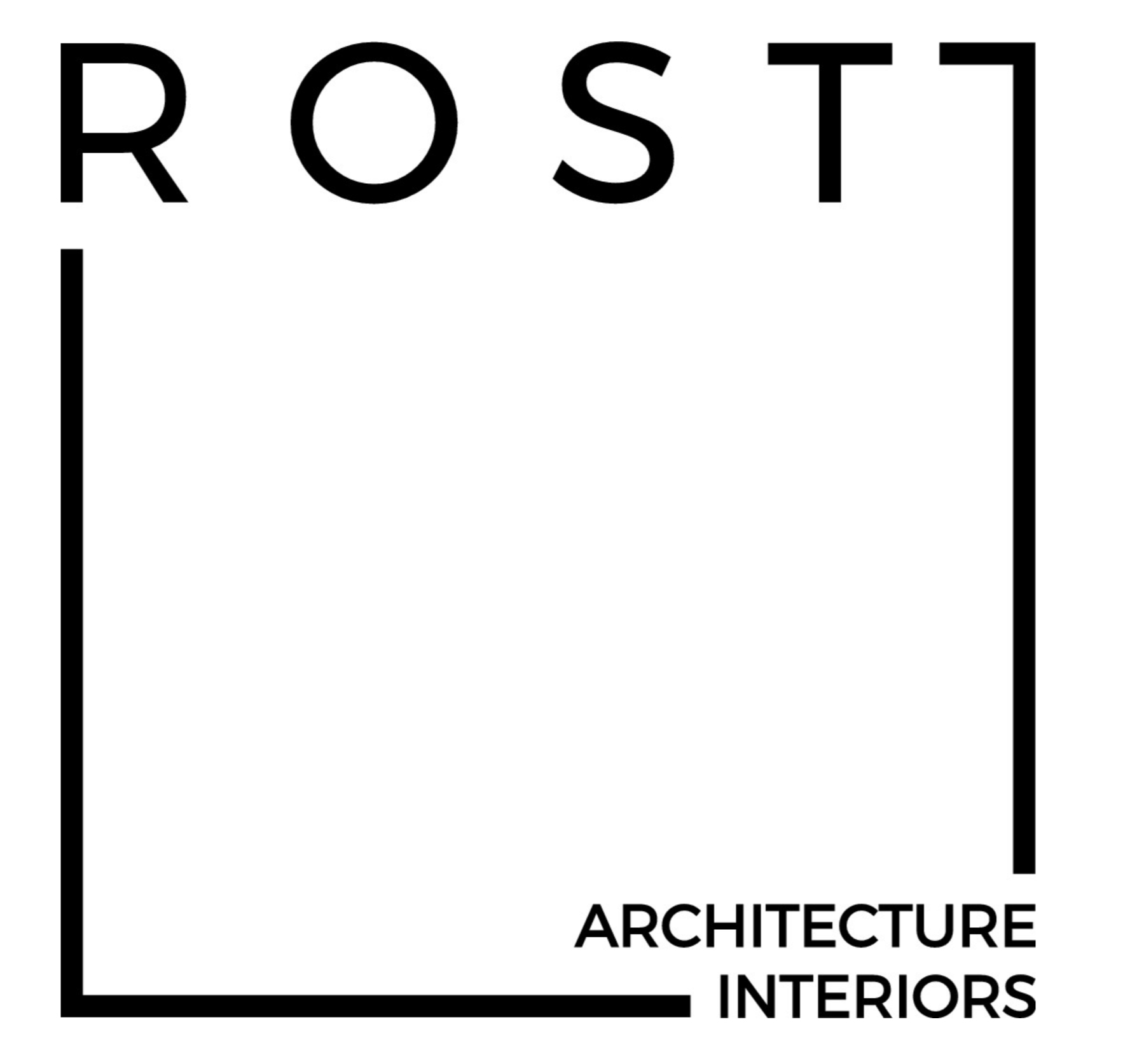



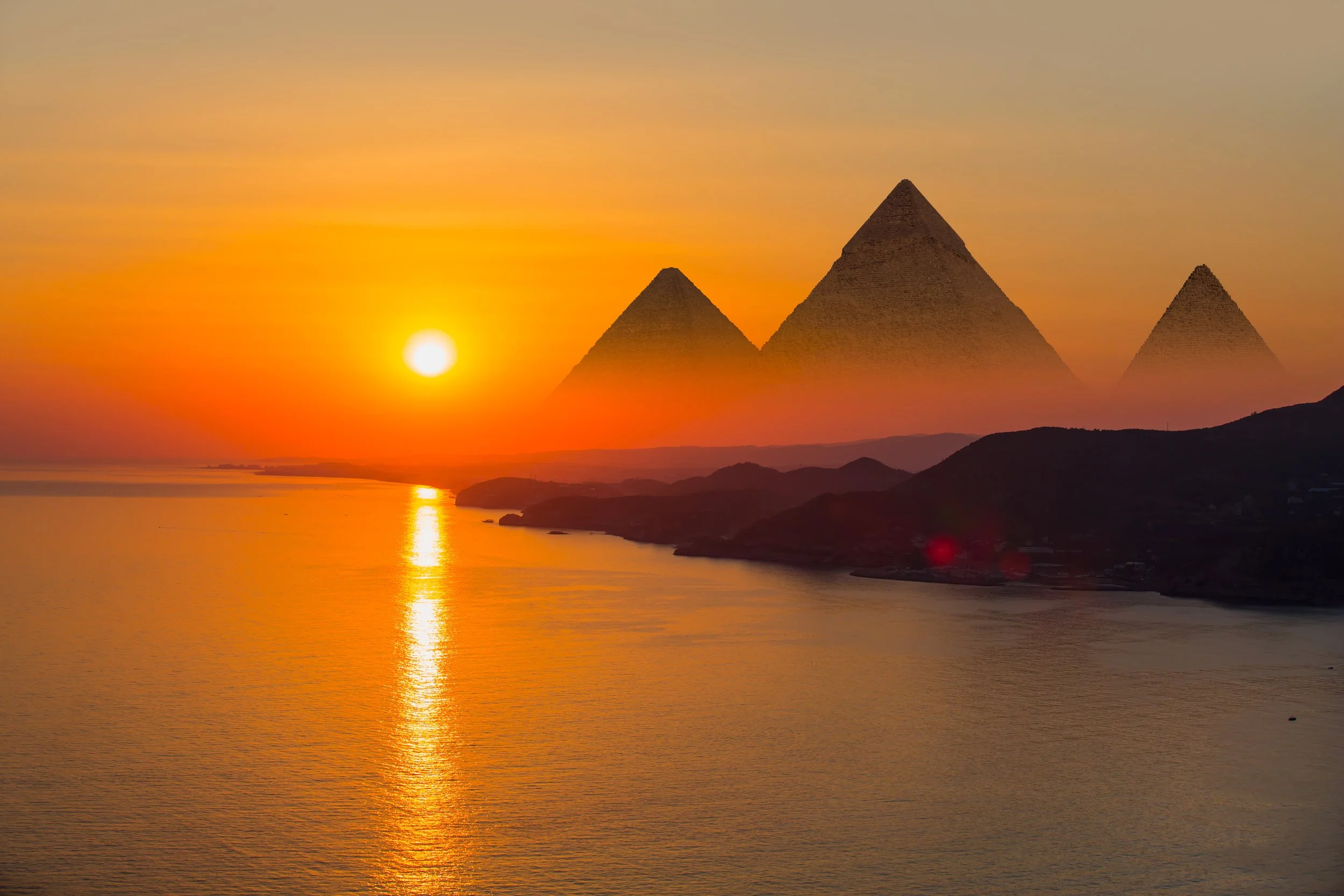



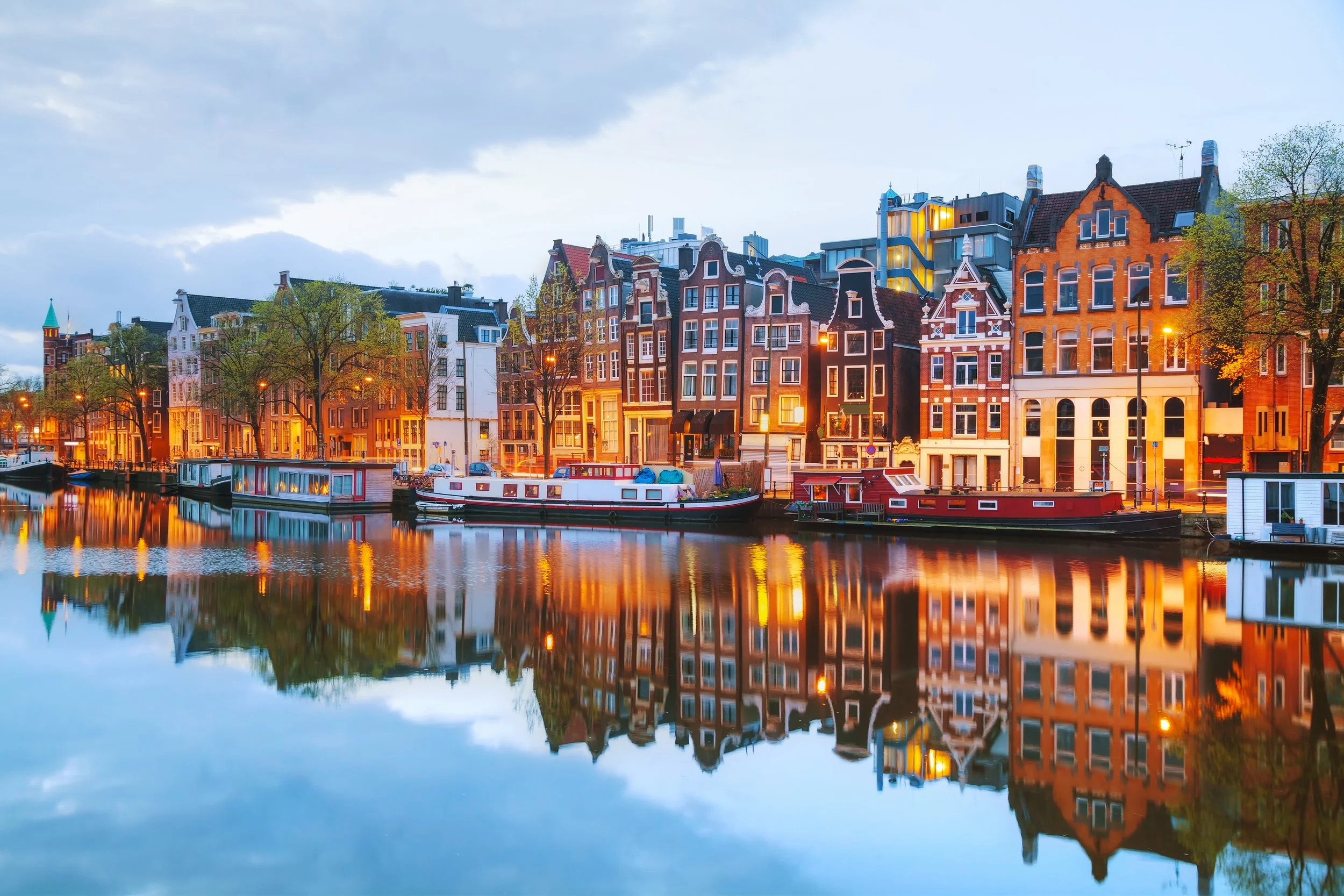
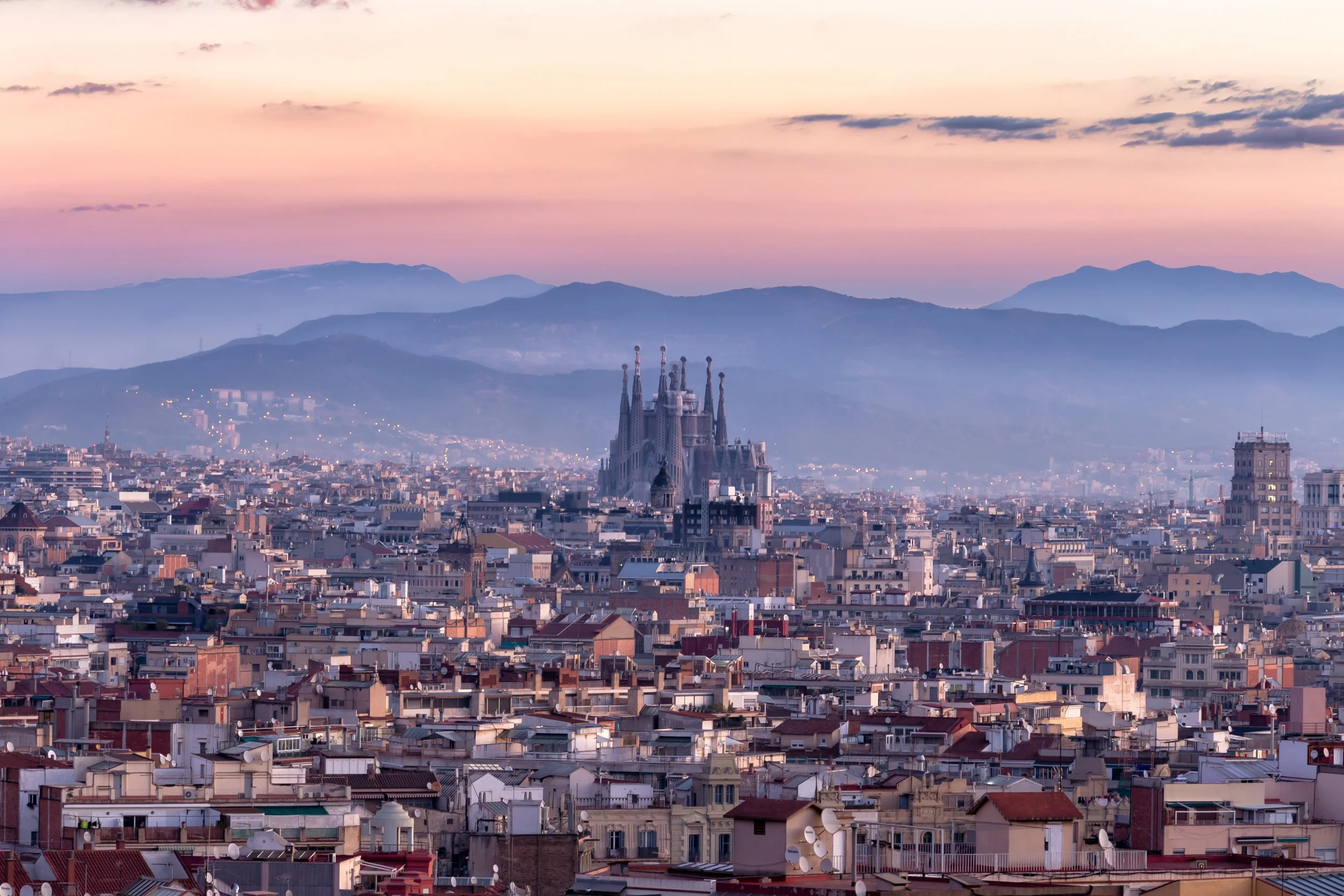
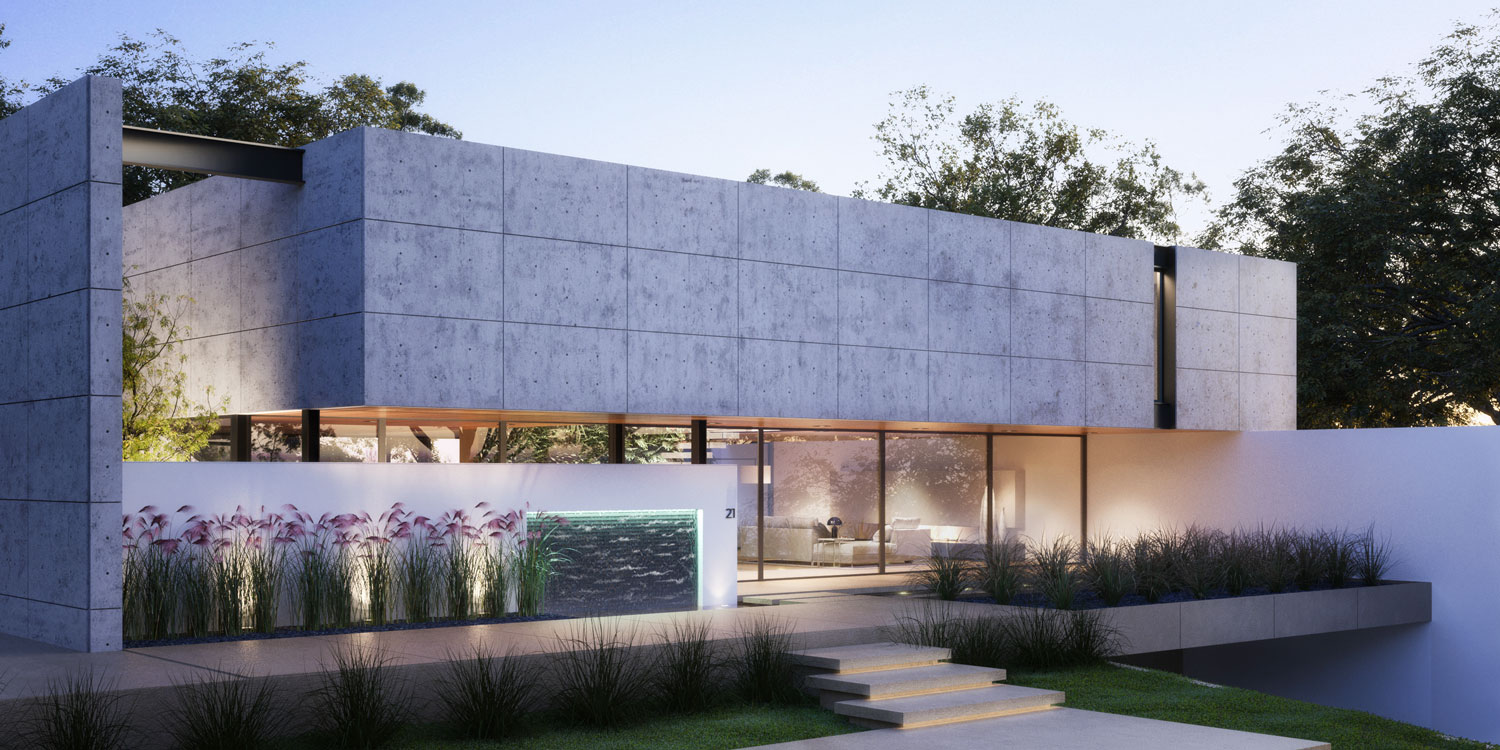

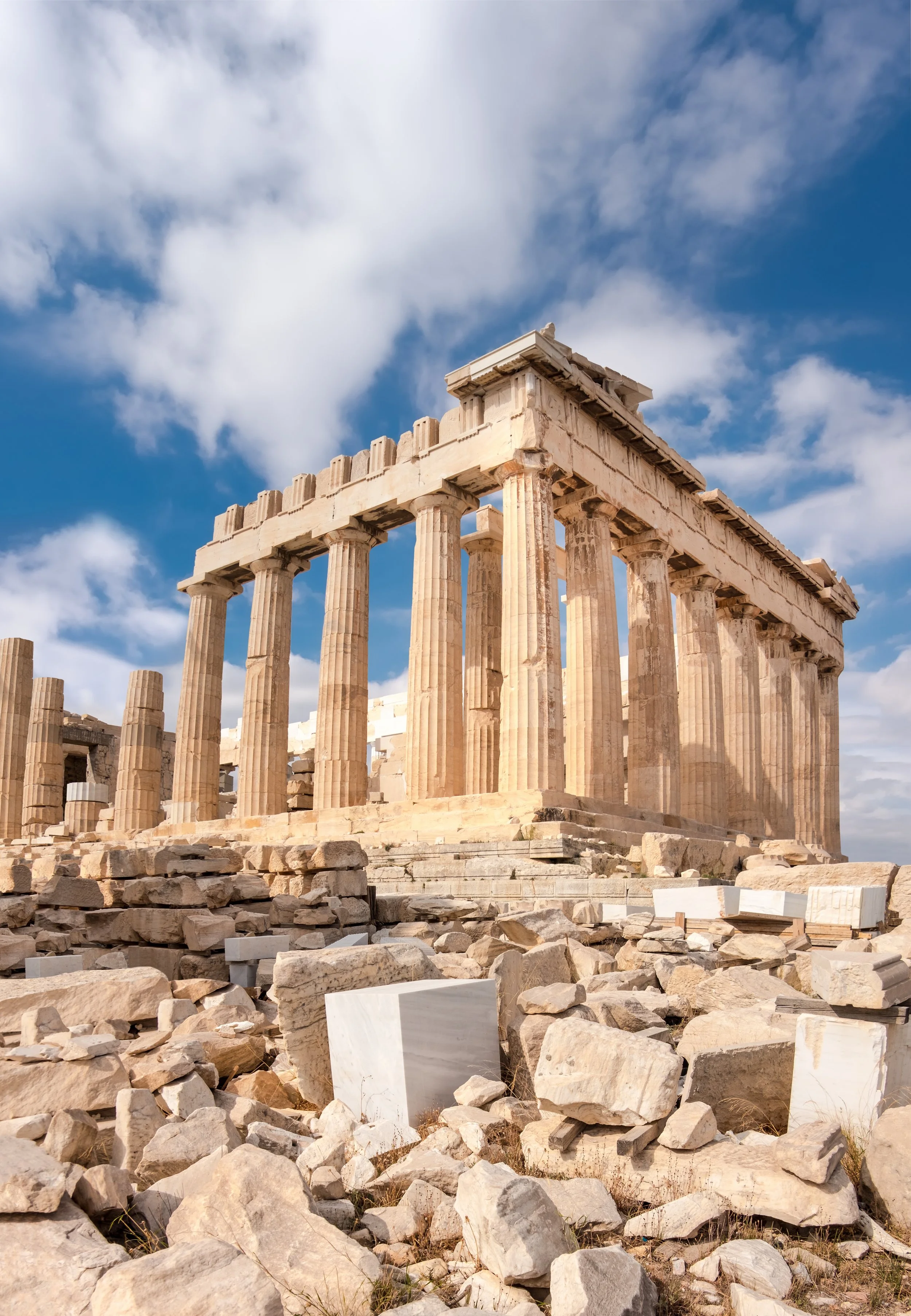





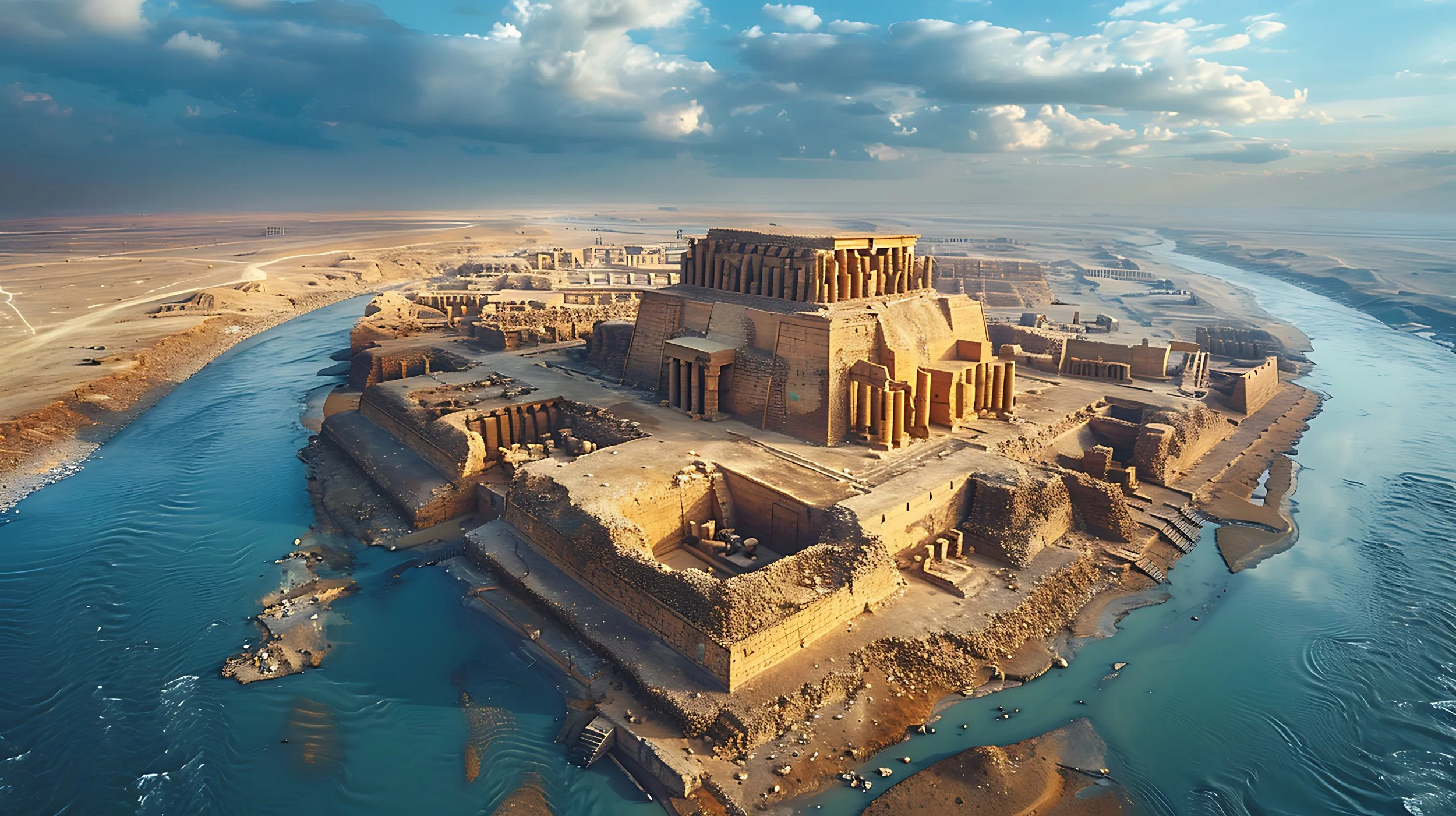











Notre Dame Cathedral had the power to embed itself into more than just the cityscape. It made its way into the hearts of the people of Paris. When the Cathedral was engulfed in flames on April 15th, 2019, we were reminded that the architecture around us impacts our lives beyond functionality. Principal and Architect of ROST Architects, Mitchell Rocheleau, discusses the history, architecture, and the architectural power of Notre Dame Cathedral.